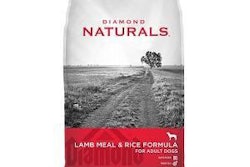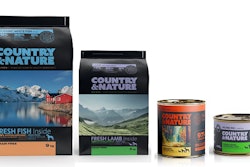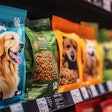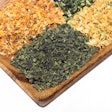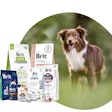
Three pet food and treat companies fared differently on the stock market in the first three quarters of 2021. Covering December 2020 to September 2021, investment bank Cascadia Capital compared the performance of Nestlé, J.M Smucker and FreshPet stocks to that of the S&P 500 index, which includes large companies trading on U.S. stock exchanges ranging from Adobe to Yum! Brands. Cascadia published their analysis in “Pet Industry Overview Fall 2021.”
Nestle Purina PetCare, J.M Smucker’s pet segment and FreshPet followed three distinct trajectories during the past year. These differences highlighted aspects of how the ongoing COVID-19 pandemic has influenced the global pet food industry, including e-commerce growth, acquisitions, supply chain problems and other phenomenon.
Purina PetCare grew as pricing changes
One stock, Nestlé, beat the S&P 500 throughout the pandemic with 10.3% year over year organic growth. Sales volume grew 9.5% during that period, while pricing gained 0.8%. Cascadia anticipates that results from the second half of 2021 will show pricing contributing more to Purina PetCare growth. The bank’s analysts observed more aggressive pricing strategies when reviewing retail store shelves.
On July 29, Purina PetCare reported their revenues from January to June 2021. Purina PetCare pet food sales grew by double‑digit led by science‑based and premium brands Purina Pro Plan, Purina ONE and Felix, as well as veterinary products. Nestlé’s e‑commerce sales grew 19.2%, reaching 14.6% of total sales in the first half of 2021. Purina PetCare showed particularly strong growth in e-commerce, one area of pet food retail that grew significantly during the pandemic. At the same time, Nestlé’s out‑of‑home pet food retail sales grew 21.3%, as pandemic-related movement restrictions relaxed in some areas.
- Purina PetCare revenue January-June 2021: CHF7,403,000 (US$8,171,341)
- Purina PetCare revenue January-June 2020 CHF6,981,000 (US$ 7,705,645)
J.M. Smucker pet food faces logistics problems
J.M. Smucker’s stock stayed in line with the S&P 500 through much of 2021, even exceeding it for several months. However, in late summer, the company’s stock dropped precipitously.
During the company’s earnings call for the second quarter of fiscal year 2021, Smucker executives pointed to production and distribution costs as the prime reasons for a decline in pet food sales. Overall, Smucker’s net pet food retail sales decreased by 1% compared to the same quarter in fiscal year 2021. U.S. retail pet food net sales stood at US$701.6 million in Q2 FY22 for Smucker. Segment profit was US$99.6 million with a profit margin of 14.2%. J.M. Smucker pet food segment profits declined 20% in the second quarter of fiscal year 2022. Smucker U.S. pet food net sales decreased US$7.1 million.
“This was driven by increased net pricing across the portfolio and favorable volume/mix for dog snacks, private label offerings, and cat food, partially offset by declines for dog food,” Mark Smucker, president and chief executive officer said in a prepared statement. “Higher commodity, manufacturing, and transportation costs, partially offset by initial higher net pricing actions, led pet foods segment profit to decline 20%.”
Earlier this month, Smucker sold its private-label dry pet food business, including its manufacturing facility in Frontenac, Kansas, USA, to Diamond Pet Foods, for approximately US$33 million. Smucker updated its full-year fiscal 2022 guidance to reflect the removal of divested net sales for the remainder of the fiscal year. Full-year net sales are now expected to range from down 1% to flat compared to the prior year.
Freshpet sales up, but operations challenged
Freshpet’s revenue growth was strong at 34.6%, according to Cascadia analysts, and its stock beat the S&P index for much of the year. However, the company’s stock underperformed the S&P the second half of the year. The company experienced several issues that may have influenced performance and retail sales. FreshPet products had problems with being unavailable or out-of-stock at retailers from January to April. Weather events hampered distribution. Amid a wider labor market shortage, Freshpet increased wages by 20% in September to increase staffing and reduce absenteeism.
Freshpet net sales increased 27.8% to US$107.6 million for the third quarter of 2021 compared to US$84.2 million for the third quarter of 2020, according to the company.




